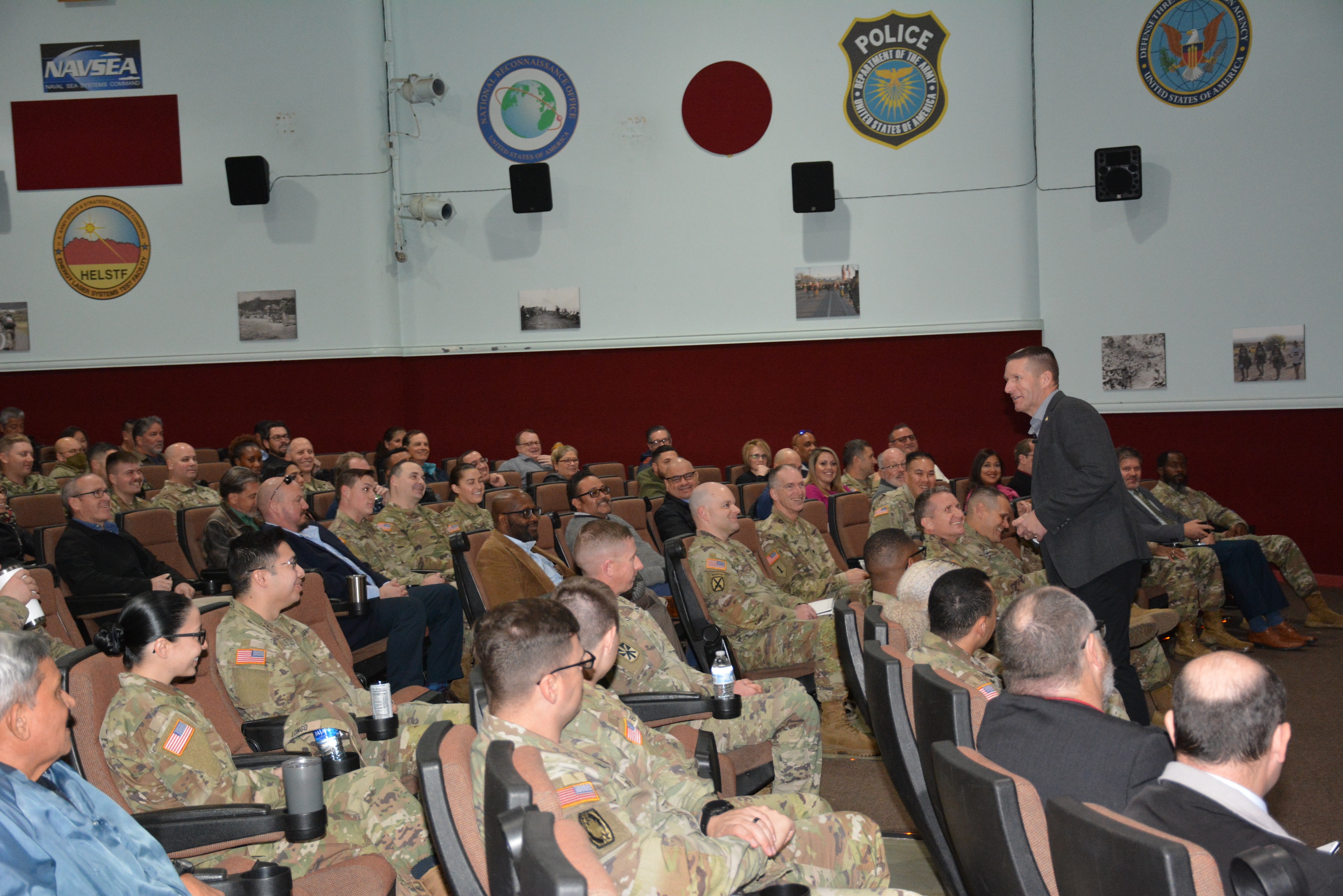
Photo by Jose Salazar
Sergeant Major of the Army (Retired) Daniel Dailey talks to the White Sands Missile Range workforce and military units during the monthly Leadership TEA Talk Dec. 13 at the Post Theater.
Sergeant Major of the Army (Retired) Dailey on balance and organizational change
Sergeant Major of the Army (Retired) Daniel Dailey talked about work life balance and organizational change during the monthly Leadership TEA Talk Dec. 13 at the Post Theater with the White Sands Missile Range workforce and military units.
Dailey thanked WSMR Commander Brig. Gen. Eric Little for inviting him to speak as part of the TEA Talk series.
“We have to invest in our people. Our people are our best investment,” Dailey said.
Borrowing a quote from American business executive Jack Welch, he said “There is no such thing as work-life balance. There are work-life choices, and you make them, and they have consequences.”
Dailey said he used to tell Soldiers that life is going to throw some unpredicted challenges at them when it is least expected or when it is the most inconvenient.
He said his wife summed it up perfectly when she said that it is not how much time you spend with your family but the quality of time you spend with them.
He went on to talk about organizational change and presented an approach to organizational change that includes the following:
1. Create a future vision by painting a vivid picture of the future.
2. Expect it to be difficult. Change is hard and requires discipline and patience.
3. Change takes time. Time is a key factor in helping people navigate through the changing processes.
4. Make it o.k. to fail. It’s o.k. to fail, it’s not o.k. to quit.
5. Allow Communication. Be more informed and less emotional.
6. Be Persistent!
Dailey said the key to organizational change is leadership. He presented 5 types of leadership power that were identified by two social psychologists in 1959, John R. P. French and Bertram Raven.
The first three fall under Formal Power Sources:
· Coercive Power: power that comes from one’s ability to punish someone else for noncompliance, for example, through fear of losing their job or their annual bonus.
· Reward Power: power that comes from one’s ability to issue rewards, for example, through a bonus or allowing time off in lieu.
· Legitimate Power: power that comes from a person’s formal right to issue directives or commands because of their position in the organization, for example, the CEO has the right to dictate the strategy.
The last two fall under Personal Power Sources:
· Expert Power: power that comes from one’s experience or knowledge, for example, a senior surgeon displays the expert knowledge for subordinates to trust them.
· Referent Power: power that comes from being trusted or respected, for example, the boss who treats everyone fairly and with respect.
Finally, Dailey said the balance of power is in affecting change. He said a balance of power can impact your relationship with colleagues, establish organizational culture, and greatly affect change.
He said the ability to adapt your leadership style and the power base from which you operate are marks of a great leader and abuse and/or misuse of power is a common cause of leadership and mission failure.
After lunch Dailey participated in a maintenance workshop at the WSMR Auto Shop.
By Miriam Rodriguez
WSMR Public Affairs




